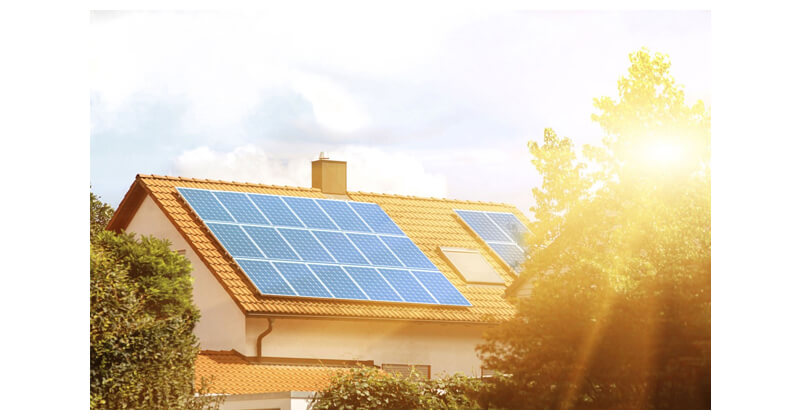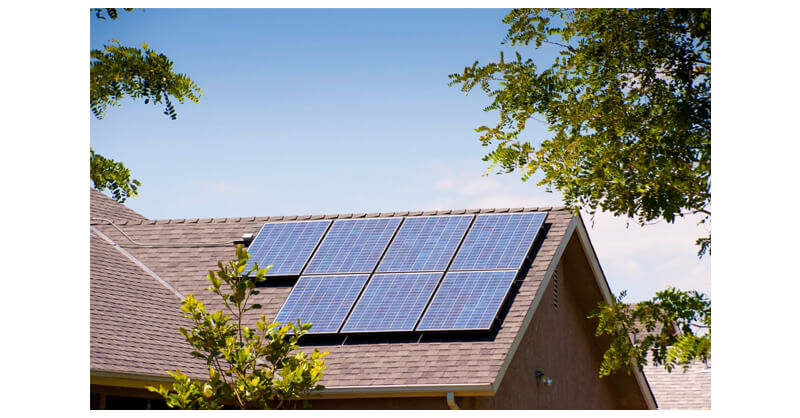Contents:
Solar energy adoption is growing rapidly across the United States, and Florida is no exception. Known as the "Sunshine State," Florida offers an ideal environment for homeowners to take advantage of solar power. However, when installing solar panels on a home, one important aspect to consider is how they affect home insurance policies. In this article, we will discuss how solar panels impact home insurance in Florida, the factors that influence premiums, and what homeowners need to be aware of when protecting their investment.

Installing solar panels can significantly impact your home insurance policy. Most insurance companies consider solar panels as part of the structure of the home, meaning that they are typically covered under standard homeowner's policies. However, there are several factors that can influence how your insurance premium is calculated when solar panels are involved.
-
Coverage Type: Standard homeowners insurance often covers solar panels, but the type of installation—roof-mounted or ground-mounted—may affect the level of coverage. Roof-mounted systems are generally included as part of the dwelling coverage, while ground-mounted systems may require additional coverage.
-
Policy Limits: Homeowners should review their insurance policies to ensure that the coverage limits adequately reflect the increased value of their home after the installation of solar panels. If the installation is expensive, it may increase the replacement cost of the home, requiring a higher coverage limit.
-
Weather-Related Risks: Florida is prone to extreme weather conditions like hurricanes and strong winds. While most homeowner policies cover damage from natural disasters, it's important to verify that your insurance will specifically cover your solar panels in the event of wind or storm damage.
-
Insurance Premiums: Adding solar panels may raise your insurance premiums slightly, as they increase the overall replacement value of your home. However, some insurance providers may offer discounts or incentives for homeowners who install solar panels due to their environmental benefits and the potential for increasing the resilience of the property.
Solar panels can affect insurance premiums in different ways. Below is a table that highlights the key factors influencing premiums when solar panels are installed in Florida homes:
| Factor |
Impact on Premium |
Details |
| Value of Solar Installation |
Increase |
Higher-value systems may require increased dwelling coverage. |
| Type of Installation |
Varies |
Roof-mounted panels are typically covered; ground-mounted may need separate coverage. |
| Location in Florida |
Increase in Hurricane-Prone Areas |
Higher premiums in coastal or high-risk zones due to storm risks. |
| Roof Condition |
Decrease |
A new or upgraded roof can lower premiums as it increases durability. |
| Insurance Provider |
Varies |
Some providers offer discounts for eco-friendly home improvements like solar panels. |
-
Hurricane and Storm Coverage: Florida's hurricane season poses a significant risk to homes, and solar panels are not exempt from this. It is critical to verify that your insurance policy provides coverage for storm damage, particularly in high-risk coastal areas. Some insurers may require additional riders or endorsements to cover storm-related damage to solar panels.
-
Roof-Mounted vs. Ground-Mounted Panels: The type of solar installation may affect your policy. Roof-mounted panels are typically considered part of the home, but ground-mounted panels may be viewed as separate structures, potentially requiring additional insurance.
-
Increased Home Value: Solar panels often increase the value of a home, so you may need to raise your coverage limits to ensure that the replacement cost is fully covered in case of a total loss.
-
Documentation and Regular Maintenance: Keeping detailed records of your solar panel installation, including receipts, contracts, and warranties, can be essential when filing an insurance claim. Additionally, regular maintenance of your panels can help prevent avoidable damage and reduce the chances of filing a claim.

In addition to coverage, there may be financial benefits to installing solar panels in Florida. Some insurance providers offer discounts for homes that implement energy-efficient systems, including solar power. Homeowners can inquire about green home discounts or energy-efficient home rebates, which may lower insurance premiums.
Solar panels are a valuable investment for Florida homeowners, offering long-term savings on energy bills and contributing to a cleaner environment. However, understanding how they interact with home insurance policies is essential to protect this investment. By reviewing your policy, discussing your needs with your insurance provider, and ensuring adequate coverage, you can enjoy the benefits of solar power with peace of mind.
FAQs







